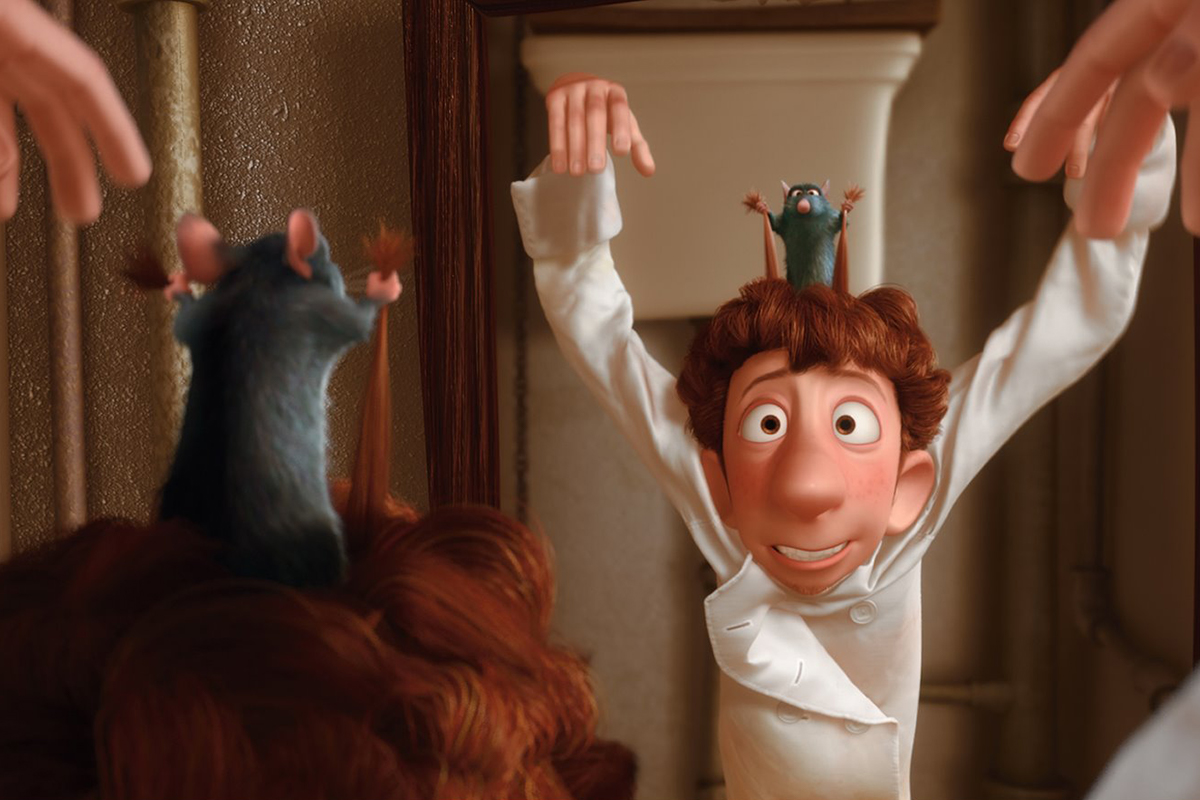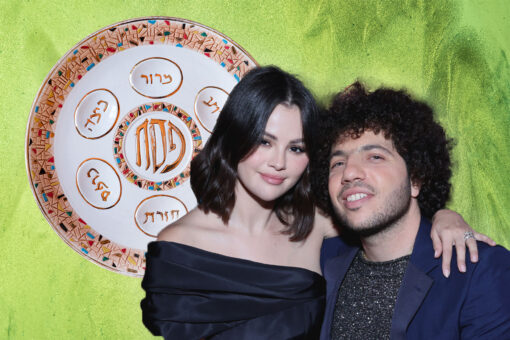Ratatouille — the captivating story of a rat and a man, bonded together to defy expectations and stereotypes and fulfill the message of “Anyone Can Cook?” — is having a massive second life online. You know what they say, rats have two lives (they don’t say that).
Its resurgence is cemented by a performance of the original “TikTok musical adaptation” this Friday, January 1, at 7 p.m. The unauthorized adaptation emerged song by song in a burst of quarantine creativity. It began in August with the title song “Remy The Ratatouille,” written by TikToker Emily Jacobsen, and has exploded into a full-blown production starring Tituss Burgess and benefitting The Actors Fund.
Personally, I am thrilled that one of my favorite films is getting attention from Gen Z. As Ratatouille gets reborn as an inherently Jewish art form (if you don’t think musical theatre is inherently Jewish, I implore you to read Razzle Dazzle by Michael Riedel), I would like to take a moment to investigate a favorite homegrown conspiracy theory: Is Linguini, the human protagonist of Ratatouille, Jewish?
Before I jump into the theory, let’s take a step back. June 22, 2007, Ratatouille is released in theaters. Also on June 22? The 11th birthday of a young Jew from the shtetl of the North Shore of Chicago who has a tradition of seeing Pixar films every year for his special day. Did this little young mensch know that this film would change his life? No.
I had an intense reaction to this film. I got a rat hand puppet and brought it with me wherever I went (it even made an appearance at my cousin’s bar mitzvah, much to my family’s chagrin). I purchased the film immediately on iTunes, and that was a whole $15 back then. I watched it every night while I did homework on my U2 iPod that I got for Hanukkah the previous year. My current play count for Ratatouille is over 300. I do not take this film lightly. And I have always known why I have such a strong affinity for this film: because it’s deeply Jewish.

The fabulous food blogger Adam Roberts wrote an excellent reflection on his website, Amateur Gourmet, on how he sees Ratatouille as a powerful allegory for Jewish assimilation during World War II and beyond. On the possible references to the Holocaust, he writes, “To me, that moment where Django shows Remy the shop window is the equivalent of Hebrew school teachers showing young Jews slides of concentration camps, reminding them that there’s no safety anywhere, that the Jews are incredibly vulnerable.” He highlights the contrasts between the film’s use of antisemitic Jewish stereotypes (the hook-noses of Remy’s elders, and the Nazi-era notion that Jews are vermin) with the subtle, heartbreaking story of a feeble young chef trying to assimilate into a world that does not want him.
Whether the parallels to Jewish life in the 20th century were intentional in the film or not, it tells a universal story of the inherent conflict between class and aspiration. I think there are beautiful Jewish similarities in Ratatouille, such as the sukkah-like imagery of Remy’s own restaurant at the end of the film. However, I am not here to argue that the rats of Ratatouille are Jewish (they are); I am here to argue that Linguini, Remy’s human companion, is Jewish.
At first glance, Alfredo Linguini is not Jewish. With a name like that, it would be a stretch to guess that he’s even tasted unleavened bread (yes, I know Italian Jews exist… still), but there is (some) evidence that Linguini is indeed a Jew. I mean, his name is a noodle… we can basically call him Kugel as a nickname.
First let’s look to Linguini’s parents. Chef Gusteau, despite having a Tevye-like mix of jolliness and grit, is probably not Jewish. However, his late mother, Renata, could be Jewish. My evidence? My very own mother is named Reena, an eastern European variant of the Hebrew name Rena. The etymology of the name Renata? Also Rena.
Okay, not convinced yet? The plot of Ratatouille is set in action by Linguini’s arrival in the kitchen of Gusteau with a letter from his mother to the new Head Chef, Skinner, asking for a job for her son. This letter has my Jewish Mother Radar blasting the “Hava Nagila.” All a Jewish mother wants is a place in the world for her child. I can attest that my mother has sent many handwritten letters trying to help me and my siblings (she famously once wrote a letter to Lorne Michaels asking him to cast my 16-year old sister on SNL… and never wrote one about her son who did too much improv growing up. I am not jealous; I am just sharing my story). While the film does not dwell on Renata’s death, I am confident that Linguini covered the mirrors in his mother’s chateau and properly held shiva.
Linguini also bears a striking resemblance to some famous Ashkenazi men, Mark Zuckerberg in particular. His fluffy hair could be described as reddish; it could also be described as brown but sunkissed after hours playing gaga outdoors at Jewish sleepaway camp. Linguini is notably the first Disney character to ever get wine-drunk, a scene eerily reminiscent of me after too much Manischewitz during the Passover seder. He’s as klutzy as Kramer, as short-tempered as George, and flirts as poorly as Jerry. Linguini is mishpacha.
My theory was confirmed this week when recent bar mitzvah boy, Jimmy Award-winner, and former Evan Hansen (canonically Jewish) Andrew Barth Feldman was cast as Linguini in the TikTok musical version of Ratatouille. Kevin Chamberlin, also Jewish, was even cast as Gusteau. So basically this is, like, pretty official.
Do I have any real evidence that Linguini is Jewish? Maybe not. And if he isn’t, it’s high time we have a Pixar film about Jews. There are four films about toys, and not a single mention of a dreidel. May I recommend an animated retelling of when I threw up on the bimah at my bar mitzvah?



